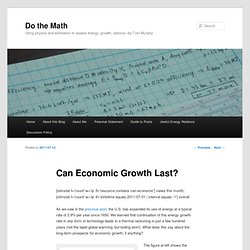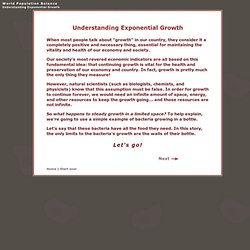

Unless It Changes, Capitalism Will Starve Humanity By 2050. Finally, a breakthrough alternative to growth economics – the doughnut. So what are we going to do about it?

This is the only question worth asking. But the answers appear elusive. Faced with a multifaceted crisis – the capture of governments by billionaires and their lobbyists, extreme inequality, the rise of demagogues, above all the collapse of the living world – those to whom we look for leadership appear stunned, voiceless, clueless. Even if they had the courage to act, they have no idea what to do. The most they tend to offer is more economic growth: the fairy dust supposed to make all the bad stuff disappear. You can see the effects in a leaked memo from the UK’s Foreign Office: “Trade and growth are now priorities for all posts … work like climate change and illegal wildlife trade will be scaled down.”
Clean energy won’t save us – only a new economic system can. Earlier this year media outlets around the world announced that February had broken global temperature records by a shocking amount.

March broke all the records too. In June, our screens were covered with surreal images of flooding in Paris, the Seine bursting its banks and flowing into the streets. In London, floods sent water pouring into the tube system right in the heart of Covent Garden. Roads in south-east London became rivers two metres deep. With such extreme events becoming more commonplace, few deny climate change any longer.
This growing awareness about the dangers of fossil fuels represents a crucial shift in our consciousness. Let’s imagine, just for argument’s sake, that we are able to get off fossil fuels and switch to 100% clean energy. The Impossible Hamster Club. Who Killed Economic Growth? Growth. Thumbnail from NYT As a rejoinder to my piece a couple weeks ago (not really), the New York Times published an article on population growth, and why we need not worry.

The problem—and solution—is all in our head. The bottom line was that we have always transformed our ecosystem to provide what we need, and in so doing have pushed the carrying capacity along with our growing population. In fact, the author says, “there really is no such thing as a human carrying capacity.” And he goes on to ask, “why is it that highly trained natural scientists don’t understand this?” Clearly there is a misunderstanding, but I’ll side with the natural scientists, naturally. Continue reading Sometimes considered a taboo subject, the issue of population runs as an undercurrent in virtually all discussions of modern challenges. The subject is taboo for a few reasons. So in the spirit of looking at the numbers, let’s explore in particular various connections between population and energy. Continue reading. Galactic-Scale Energy.
Since the beginning of the Industrial Revolution, we have seen an impressive and sustained growth in the scale of energy consumption by human civilization. Plotting data from the Energy Information Agency on U.S. energy use since 1650 ( 1635-1945 , 1949-2009 , including wood, biomass, fossil fuels, hydro, nuclear, etc.) shows a remarkably steady growth trajectory, characterized by an annual growth rate of 2.9% (see figure). It is important to understand the future trajectory of energy growth because governments and organizations everywhere make assumptions based on the expectation that the growth trend will continue as it has for centuries—and a look at the figure suggests that this is a perfectly reasonable assumption.
(See this update for nuances.) Total U.S. Energy consumption in all forms since 1650. Can Economic Growth Last? [slimstat f='count' w='ip' lf='resource contains can-economic'] views this month; [slimstat f='count' w='ip' lf='strtotime equals 2011-07-01 | interval equals -1'] overall As we saw in the previous post, the U.S. has expanded its use of energy at a typical rate of 2.9% per year since 1650.

We learned that continuation of this energy growth rate in any form of technology leads to a thermal reckoning in just a few hundred years (not the tepid global warming, but boiling skin!). What does this say about the long-term prospects for economic growth, if anything? World economic growth for the previous century, expressed in constant 1990 dollars. Exponential Economist Meets Finite Physicist. [slimstat f='count' w='ip' lf='resource contains economist'] views this month; [slimstat f='count' w='ip' lf='strtotime equals 2011-07-01|interval equals -1'] overall Some while back, I found myself sitting next to an accomplished economics professor at a dinner event.
Shortly after pleasantries, I said to him, “economic growth cannot continue indefinitely,” just to see where things would go. It was a lively and informative conversation. I was somewhat alarmed by the disconnect between economic theory and physical constraints—not for the first time, but here it was up-close and personal. Though my memory is not keen enough to recount our conversation verbatim, I thought I would at least try to capture the key points and convey the essence of the tennis match—with some entertainment value thrown in. Cast of characters: Physicist, played by me; Economist, played by an established economics professor from a prestigious institution. Act One: Bread and Butter. Recovered Sustainable Means Bunkty to Me. 1977 views this month; 1977 overall What?

Arithmetic, Population and Energy - 1 - a talk by Al Bartlett. Understanding Exponential Growth Tutorial and Exercise - World Population Balance. When most people talk about "growth" in our country, they consider it a completely positive and necessary thing, essential for maintaining the vitality and health of our economy and society.

Our society's most revered economic indicators are all based on this fundamental idea: that continuing growth is vital for the health and preservation of our economy and country. In fact, growth is pretty much the only thing they measure!